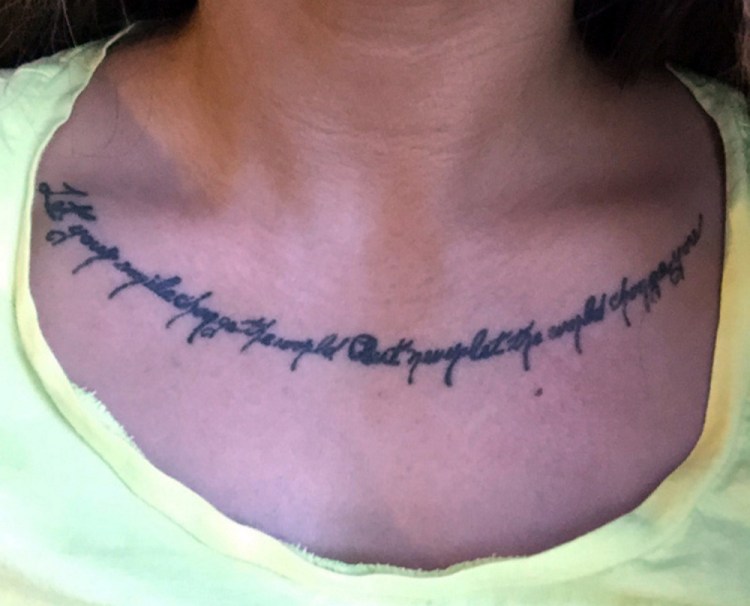The U.S. Marine Corps has agreed to relax its uniform policy for female recruits with certain tattoos following an appeal by U.S. Rep. Chellie Pingree, who asked for the change on behalf of a young woman from Kennebunk.
Pingree last month wrote a letter to Gen. Robert Neller asking him to change what she believed was a discriminatory policy. She drafted the letter after hearing from a constituent, 20-year-old Kate Pimental, who had enlisted in the Marines but was told she could not join because she has a tattoo along her collarbone that would have been visible beneath v-neck undershirts.
In a statement Monday, Pingree, a Democrat who represents Maine’s 1st Congressional District, announced that the Marine Corps has agreed to change uniform standards to allow women to wear crew-neck undershirts like their male counterparts, instead of v-neck shirts. The change was authorized on March 10.
“Honestly, we were a little surprised (it happened so quickly),” Pingree said Monday afternoon by phone. “Sometimes when you bring up an issue in the military or in any branch of government, a letter can sit on a desk for months with no action. We’ve very happy that didn’t happen here.”
Pingree said the policy change was common sense and she was grateful to the commandant for listening to her concerns.
“I don’t believe the old policy was intentionally discriminatory, but in the end it prevented women with some tattoos from enlisting when their male counterparts with the same tattoos were allowed to sign up,” she said.
Pimental, in a statement issued by the congresswoman’s office, said she’s thrilled about the change in policy.
“There is nothing I want more than to be able to serve as a Marine,” she said. “And I’m so grateful that Congresswoman Pingree stood up for me and helped get this policy changed.”
Pimental’s tattoo, which she got shortly after turning 18, runs just below her collarbone and reads, “Let your smile change the world but never let the world change you.”
The Marine Corps, along with other military branches, has a strict policy on tattoos – especially visible tattoos. Recruits can have no more than four tattoos and they cannot contain any vulgar words or images or references to drugs. Additionally, sleeve tattoos that cover the arm are prohibited, as are tattoos on the face or neck.
However, waivers are often given if a tattoo can be covered up and Pingree’s argument for Pimental was that her ink could be covered up if she were allowed to wear a crew-neck shirt.
As more and more women serve in the military, and now in combat, Pingree said she expects that the military may need to update other practices that are potentially discriminatory.
Send questions/comments to the editors.






Success. Please wait for the page to reload. If the page does not reload within 5 seconds, please refresh the page.
Enter your email and password to access comments.
Hi, to comment on stories you must . This profile is in addition to your subscription and website login.
Already have a commenting profile? .
Invalid username/password.
Please check your email to confirm and complete your registration.
Only subscribers are eligible to post comments. Please subscribe or login first for digital access. Here’s why.
Use the form below to reset your password. When you've submitted your account email, we will send an email with a reset code.